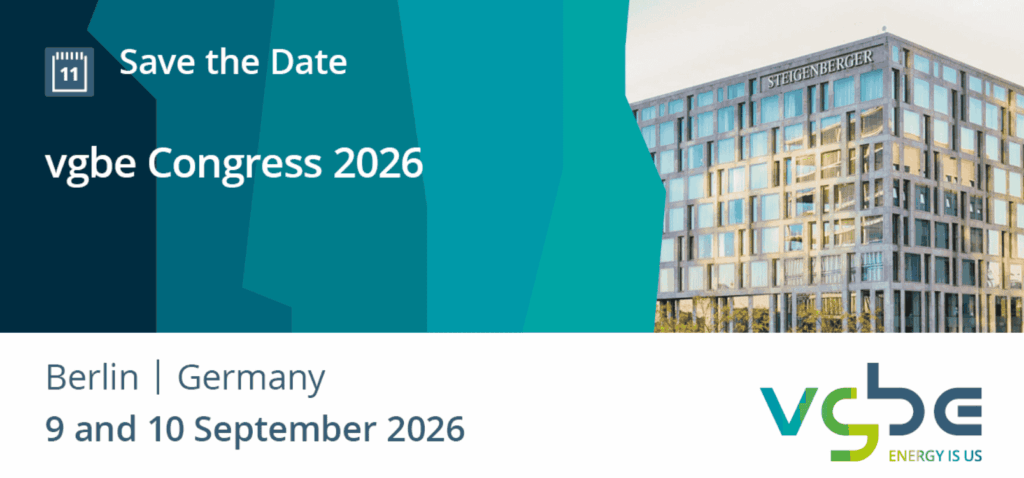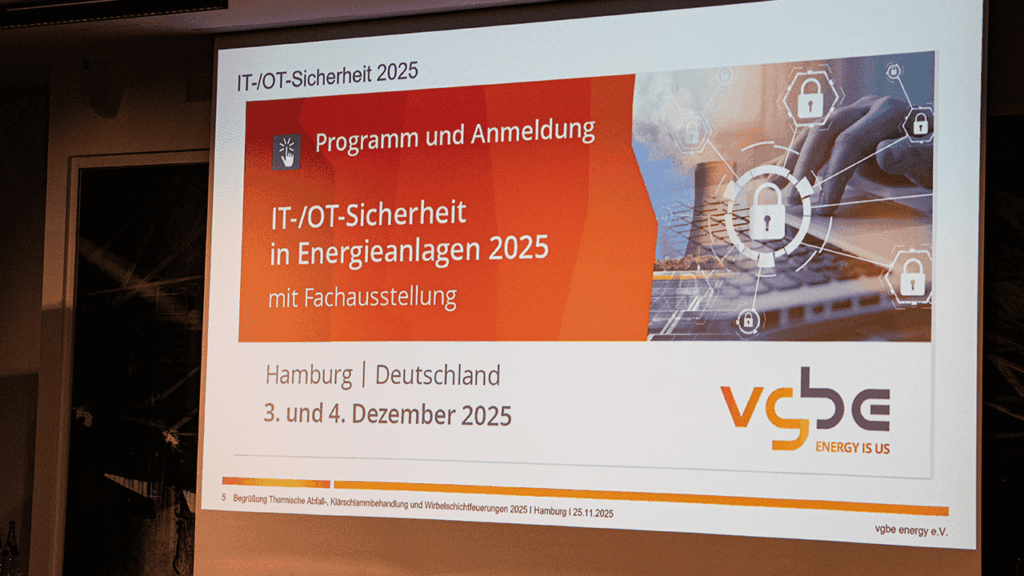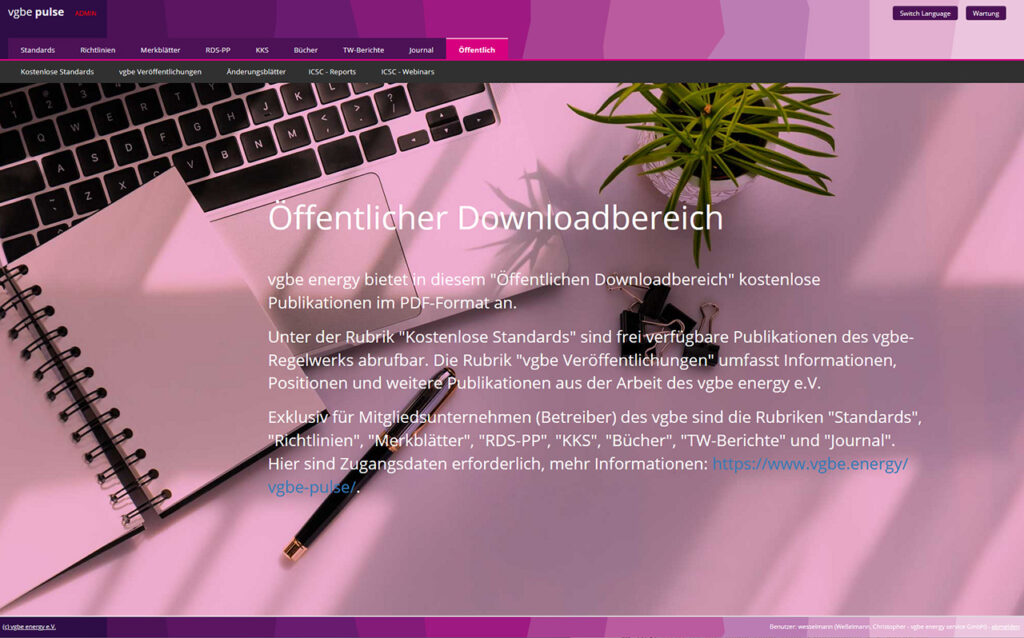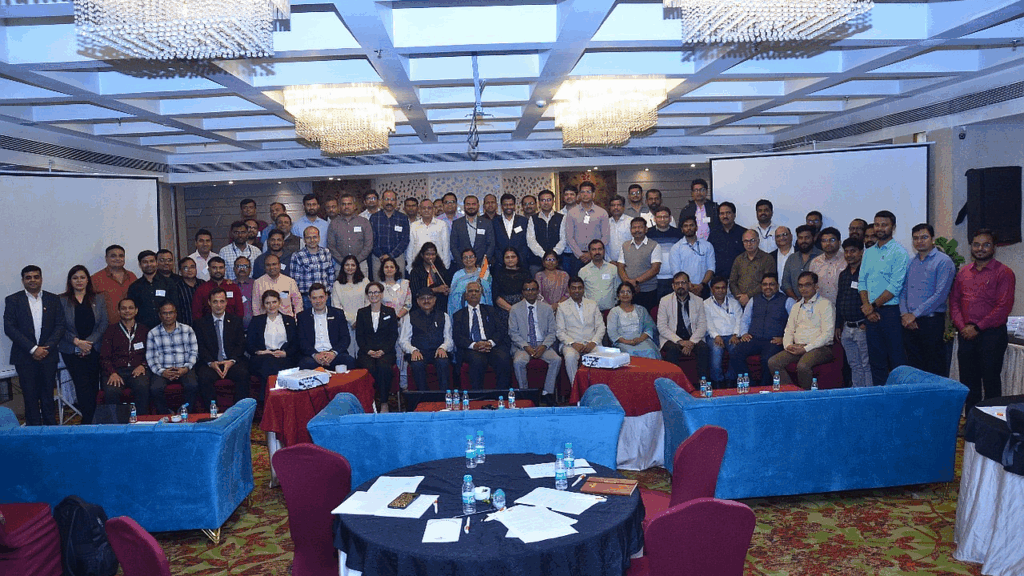A highlight was the participation of a delegation from the South African utility Eskom, which celebrated its 50th anniversary as vgbe member. This anniversary was honoured on the eve of the Congress at a get-together with a review of 50 years of cooperation between Eskom and vgbe. The ESKOM delegation was led by Bheki Nxumalo, Group Executive Generation on behalf of the Group Chief Executive Dan Marokane.
The Chairman looked back on a successful year for vgbe: the Competence Center “Future Energy System“, founded in 2023, has firmly established key topics such as carbon capture utilisation and storage (CCUS), decarbonisation, energy storage and the key role of hydrogen in the technology mix.
vgbe is also involved in practical research projects in the field of renewable energies, particularly in hydropower.
Another personal highlight for the Chairman was the successful financial turnaround, which secured the association’s future viability.
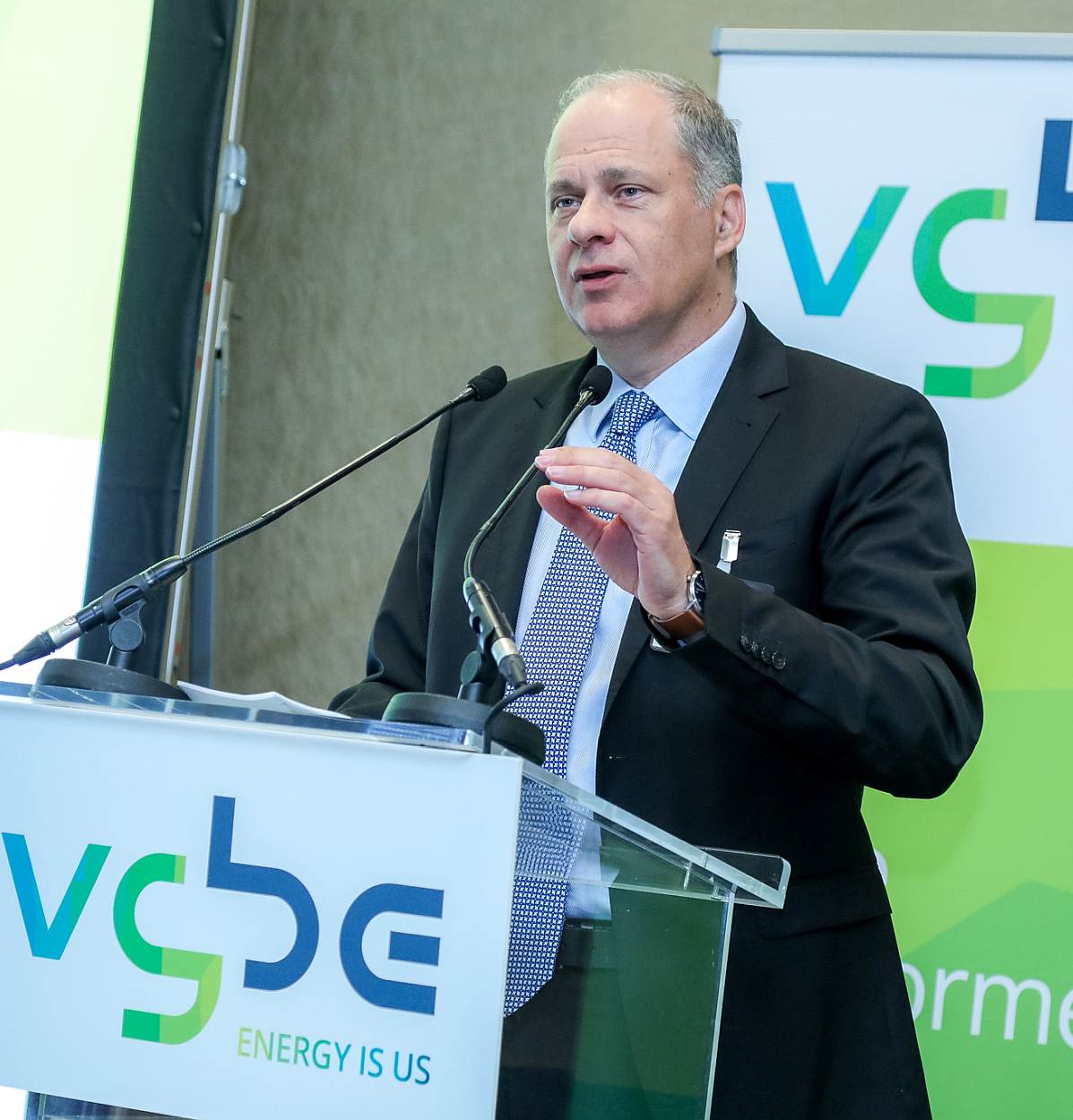
After the presentation of the vgbe Innovation and Quality Awards, the first section focused on current developments in energy policy. Kristian Ruby, Secretary General of Eurelectric, reported on a shift in focus in Brussels politics away from climate protection and toward economic growth and energy security. Bastian Olzem from BDEW cited the issues of hydrogen ramp-up, the Power Plant Safety Act, and the capacity market as examples of a lack of progress in German energy policy. Barbara Schmidt from Oesterreichs Energie explained why issues of economic efficiency and affordability are a top priority even in an electricity system based on more than 80% hydropower.
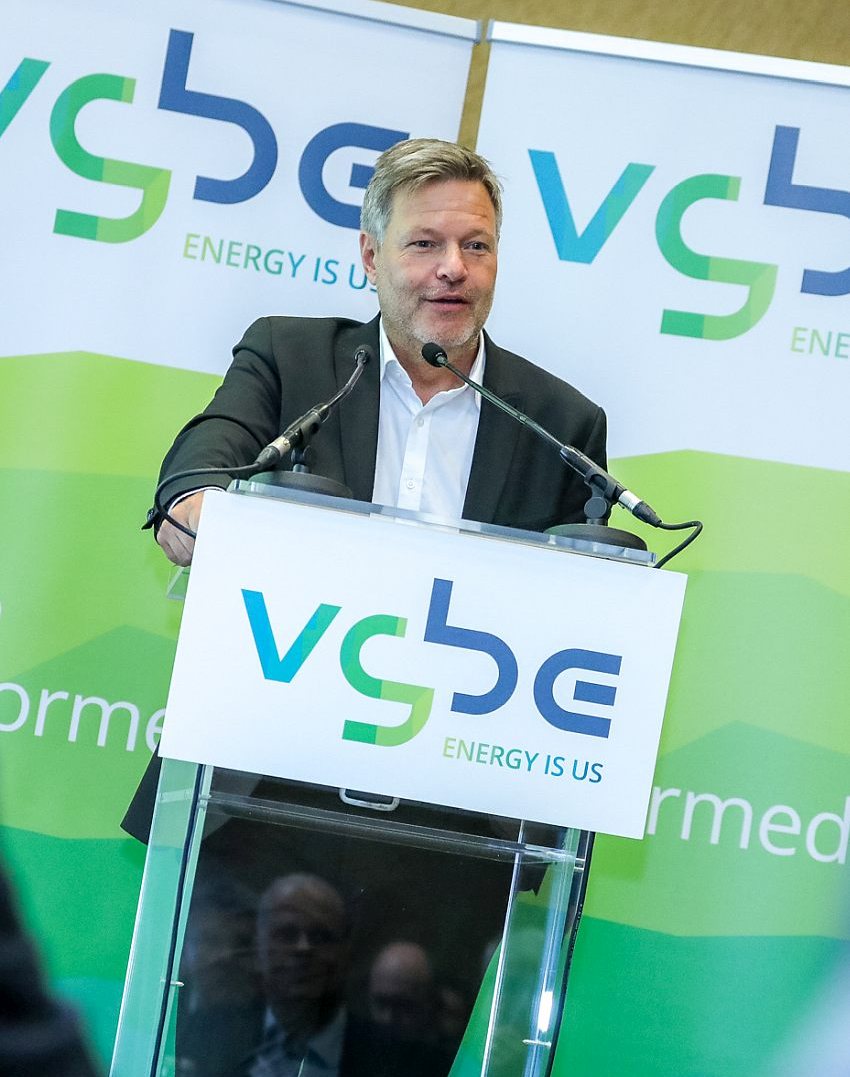
After the lunch break the former German Vice-Chancelor and Minister for Economy and Climate Dr Robert Habeck gave the keynote speech following the Congress motto “Energy transition and affordability – how do we reconcile these goals?”.
He emphasized the importance of renewable energies in increasing resilience and energy independence, the increasing risks to the security of transmission grids, and the connection between climate and security policy. In his view, for the reasons mentioned, the transformation of the energy system is now more of an economic than an ecological undertaking. He particularly praised the close cooperation between politicians and energy companies in averting the gas crisis following Russia’s attack on Ukraine.
Other key topics included Europe’s role in hydrogen, the design of flexible capacity markets, the future role of government support instruments, and safeguarding European democratic values and competitiveness. He surprised listeners with a clear plea for more market economy in the system and for not getting bogged down in regulatory minutiae about individual GW or design details, but rather to resolutely strive for larger and, if necessary, less precise steps.
He then explored these topics in greater depth in a panel discussion with Dr Karl Heinz Gruber, Kristian Ruby and Georg Stamatelopoulos, which highlighted the importance of reliable political framework conditions, social acceptance, affordability and energy sovereignty in global competition. Dr Karl-Heinz Gruber provided the quote of the day with his statement that, in contrast to the US slogan “Drill baby, drill,” the motto in Europe should rather be “Store baby, store” in order to ensure decarbonization, resilience, and affordability.
In the concluding strategy section, the ambitious transformation plans of vgbe member companies ESKOM, EVN, and Vattenfall were presented.
The first day of the Congress ended with an evening event at the Vienna Technical Museum, where exciting exhibits from Tech history and present provided a setting for discussions, exchanges and networking.
Lecture programme on the second day of the congress
Two parallel sections covering a wide range of topics offered diverse perspectives on the energy transition
The second day of the congress continued with the lecture programme. In eight sessions, interesting experiences and developments were presented and discussed in depth on topics such as operational experience, security of supply, optimization and hybridization of existing plants, decarbonization options, technologies and controllable generation, as well as digitalization and AI.
Conclusion:
This year´s vgbe Congress in Vienna was once again a central platform for discussing the challenges and opportunities of the energy transition. The associated topics were the focus of intense discussion. Innovative solutions for a sustainable energy future were presented and strategies for implementation were outlined.
The event team would like to express its sincere thanks to all speakers and participants for their valuable contributions and inspiring discussions. Special thanks go to the sponsors, who played a key role in the success of the outstanding vgbe Congress in the city on the Danube.
The team is already looking forward to the next vgbe Congress, which will take place on September 9/10, 2026 in Berlin.
